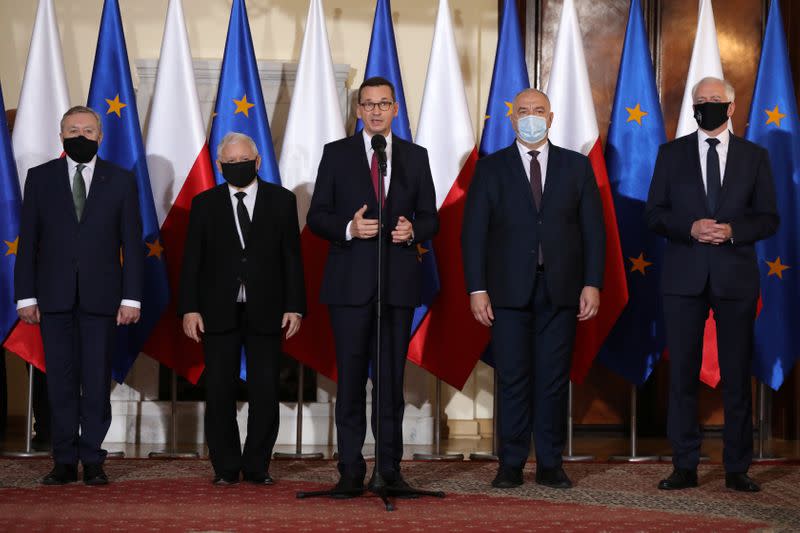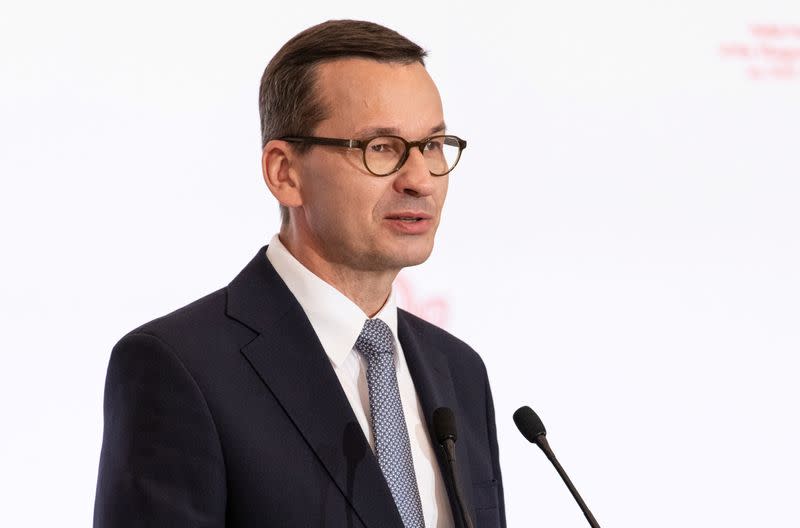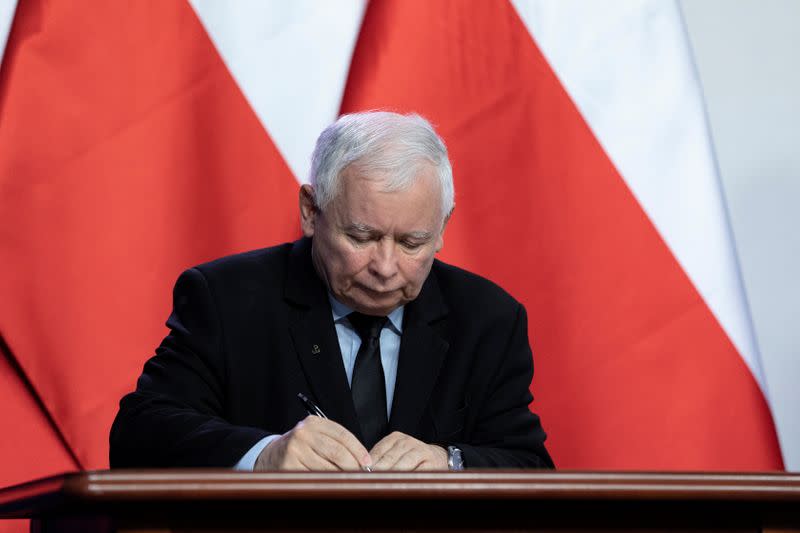Poland's government heads further to the right in new lineup
By Alan Charlish and Joanna Plucinska
WARSAW (Reuters) - Poland's ruling nationalists appeared to have taken a turn further to the right on Wednesday with the appointment of an ultra-conservative education chief in a new cabinet lineup, raising the prospect of new friction with the European Union.
Following weeks of internal rows over jobs and policies such as women's and LGBT rights, which threatened to break up the three-party Law and Justice (PiS) coalition, PiS chief Jaroslaw Kaczynski, 71, also joined the government as deputy premier.
PiS says a reshuffle was needed to streamline decision-making at a time when the coronavirus pandemic has pushed economies around the world into recession.
But critics call it the byproduct of an internal squabble between the ultra-conservative Justice Minister Zbigniew Ziobro and the more pragmatic Prime Minister Mateusz Morawiecki, both of whom are vying to succeed the ageing Kaczynski.
"I am convinced the government with the new people ... will be even better equipped than before to deal with all challenges that await us, both in the internal arena as well as on the global and European arena," Morawiecki told a news conference.
The education ministry, at the heart of PiS' efforts to instill more conservative values in public life, will go to Przemyslaw Czarnek, 43, a lecturer at a Catholic university who has said gay people are "not equal to normal people".
Speaking on Tuesday, Czarnek said schools should protect children from a moral and sexual revolution driven by "LGBT ideology."
"We will not allow for children to be exposed to an ideology ... that's contrary to values that have been the foundation of the Polish society for centuries," Czarnek told public TVP broadcaster.
He has also said that, under certain circumstances, parents have a constitutional right to use corporal punishment against children and that women should not put off having children to pursue a career as starting a family is what "God has called (them) to do."
Morawiecki said an additional post without a portfolio would be allocated to the United Poland party, Ziobro's small coalition grouping, but he did not name a minister to the role.
Sources have said Morawiecki prefers a more tempered approach to issues such as the rights of gay, lesbian, bisexual and transgender (LGBT) people, a view seen as reflecting a desire to patch up tense relations with Brussels.
A leftist oposition lawmaker, Barbara Nowacka, said however that Czarnek's appointment was tantamount with a "new culture war".
"We expect changes in the core curriculum, changes in the autonomy of universities," Nowacka told Reuters. "He is a man who would really like that the Catholic region is dominant."
Nowacka said the entry into government by Kaczynski, who is known to prefer to pull the levers of power backstage, suggests the government was on board with that.
It was not immediately clear whether the changes meant the government would move quickly to finish its contested court reforms, which the European Union says politicise courts and contradict democratic norms.
On Wednesday, the European Union's executive slammed Poland and Hungary for failing to live up to core democratic standards, giving ammunition to those in the bloc pushing to shut them out from funding unless they beef up freedom of media and courts.
In a sign of further conflict to come, Poland and Hungary's Justice ministries were quoted by Polish state-run news agency PAP as saying in a statement that the scope of the report was "arbitrary" and that the selection of sources used was "opaque and biased".
(Writing by Justyna Pawlak, editing by Angus MacSwan and Nick Zieminski)





